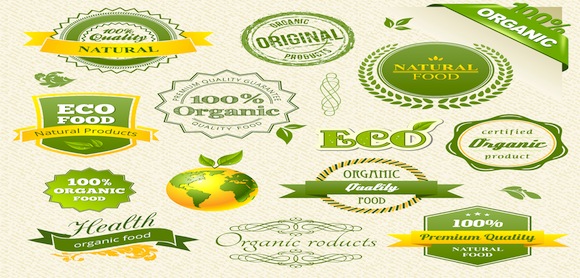Countries Around The World Willing To Pay Extra For Eco-Products – UK Amongst Top!
A recent survey by Nielsen, asked more than 29,000 internet respondents in 58 countries about eco-products and their buying behaviour. Overall, it showed that one in four UK consumers are choosing more environmentally-friendly products despite their higher prices. Also, 3 in 5 consumers in Singapore wait for new products to undergo testing/approval (i.e. to know they are safe/eco-friendly) before purchasing them.

The UK trend reflects a global surge in interest in environmentally friendly products with the proportion of consumers prepared to pay more to protect the natural world more than doubling to 46% last autumn from 22% in spring 2011, according to Nielsen.
Asia-pacific consumers (55%) are the most likely to buy eco-friendly products regardless of price, followed by their counterparts in Middle East/Africa (51%), Latin America (46%), Europe (37%) and, finally, North America (30%). The global average is 46%.
Indian and Vietnamese consumers are the most likely (both 71%) to choose more eco-friendly options, despite the extra cost, followed by Turkey (68%).
Some 60% of Russians say they let environmental concerns determine which products they buy, putting them amongst the most likely Europeans to do so. This is around twice as many as in other key European economies such as Italy (34%), Sweden (32%), Germany (28%), France (25%) and Spain (23%).
Read more by clicking below…
“The increasing prevalence to pay more for eco-friendly versions of products is down to factors such as greater availability and improved marketing to consumers,” said Nielsen’s UK head of retailer and business insight, Mike Watkins.
What Types Of Advertising Were Found To Influence Purchasing?
Nielsen’s review of 21 methods to reach consumers across various media and advertising platforms shows that a mix of word-of-mouth communication, traditional
 advertising and internet activity are the most persuasive ways to drive awareness. Although, Asian-Pacific countries, like Singapore do prefer “word of mouth” referrals when it comes to a new product, North American’s are more persuaded by online advertising and visual brand appeal and social media (i.e. branding, product design, functionality, pinterest exposure)
advertising and internet activity are the most persuasive ways to drive awareness. Although, Asian-Pacific countries, like Singapore do prefer “word of mouth” referrals when it comes to a new product, North American’s are more persuaded by online advertising and visual brand appeal and social media (i.e. branding, product design, functionality, pinterest exposure)
It is also important to note, that a year and a half after Neilson’s global survey on “Global, Socially Conscious COnsumers”, the percentage of global consumers willing to reward companies that give back to society grew by 5% – increasing to 50 percent from 45 percent. (http://www.nielsen.com/us/en/reports/2013/consumers-who-care.html)
Disclaimer: Findings of Neilson’s survey are based on respondents with online access across 58 countries. While an online survey methodology allowed tremendous scale and global reach, it provides perspective on the habits of existing Internet users, not at total populations. Survey responses are indicative of respondent’s beliefs about their purchasing habits rather than actual measured data.
Sources:
http://www.sg.nielsen.com/site/documents/Nielsen-Global-New-Product-Press-Release-Singapore-final.pdf
Neilson, UK (2012). Report: “Global, Socially Conscious Consumer”



